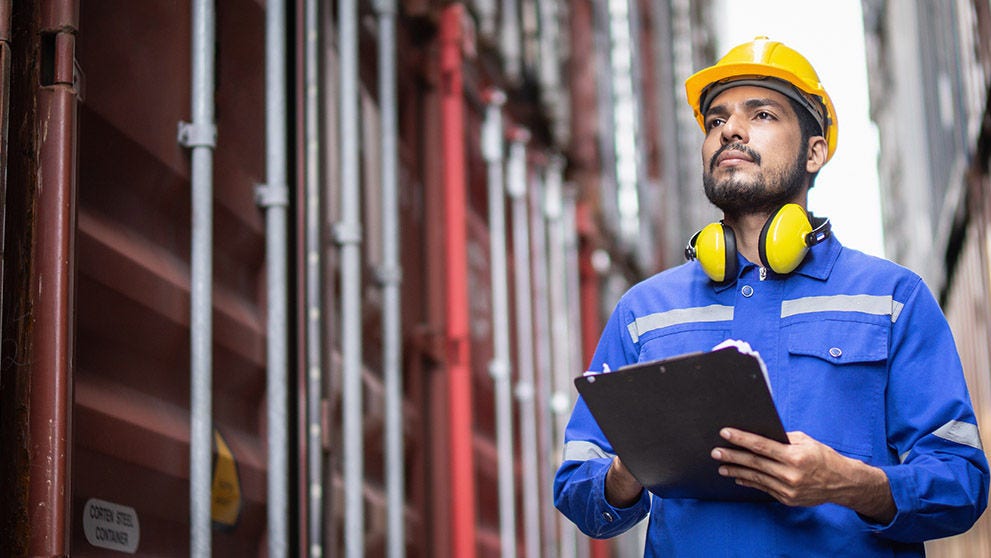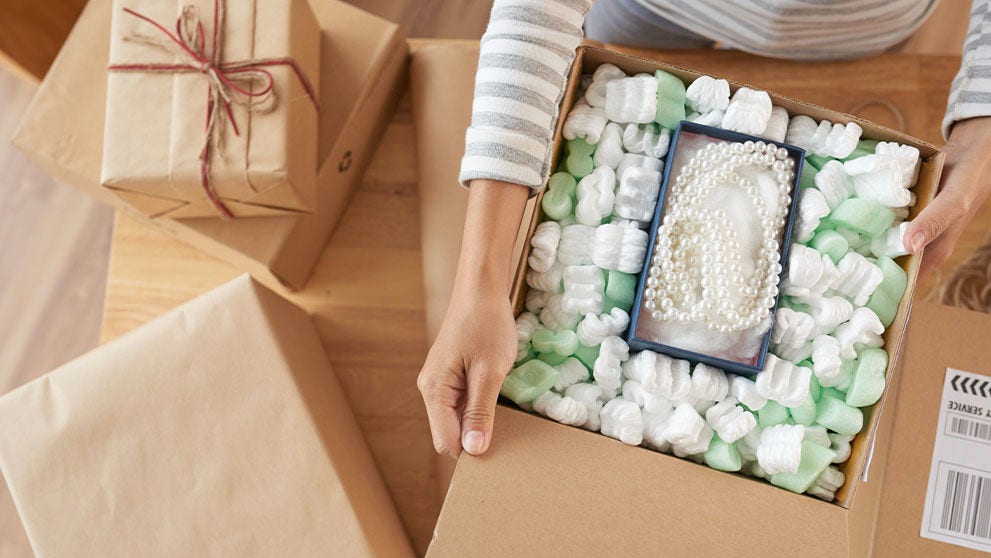Like many modern businesses, DHL Express Ireland is deeply committed to running an eco-focused operation, actively paving the way for a greener future for all. As the situation surrounding sustainable packaging trends continues to develop, current businesses both in Ireland and worldwide are looking for effective ways to reduce their environmental footprint.
Within this vital pursuit, packaging stands out as a crucial area for impact. This guide will explore how embracing reusable packaging can help your business deliver effective environmental and operational benefits, ensuring your efforts resonate with today's sustainability-conscious consumers.
What is sustainable packaging and why it matters
As a business owner, understanding sustainable packaging is crucial. However, it’s not just about what customers prefer; regulatory pressure, including stringent EU directives and Ireland's own waste reduction goals, also play a role.
Given this growing imperative, and with the already substantial packaging waste generated each year in Ireland, embracing sustainable packaging is vital now more than ever.
Current state of sustainable packaging in Ireland
According to the Environmental Protection Agency (EPA), Ireland generated 1.2 million tonnes of packaging waste in 2021, a significant 120,000-tonne increase from 2020. While 2021 also saw record recycling volumes, packaging waste generation was unfortunately outpacing these efforts.
Additionally, in 2021, only 28% of plastic packaging waste was recycled, far from the 50% target for 20251. This highlights a critical area of concern for carbon footprint reduction, requiring concerted efforts to increase the recycling rates and adopt effective sustainable packaging strategies.
Government initiatives and regulations
Building on this, the Irish Government's 2024 Climate Action Plan prioritises waste prevention across key areas, including packaging and plastics2. One significant step was the Deposit Return Scheme, launched in February 20243, that aims to boost public recycling of bottles, cans, and containers.
Zooming in, the Climate Action Plan also aims to achieve the following by 2030:
Recycling 70% of all packaging waste.
Recycling 55% of plastic waste.
Reducing food waste by 50%.
Collecting 90% of plastic drink containers.
Ensuring 100% plastic packaging is reusable or recyclable.
Consumer demand for eco-friendly solutions
Today's customers genuinely care about how your business operates, driving a significant shift in online shopping trends. For instance, Drapers’ ‘Sustainability and the Consumer’ 2021 report found that 77% of fashion consumers desire minimal packaging4, with two-thirds preferring recyclable options.
Additionally, Accenture’s ‘The Sustainable Consumer: Bridging the Gap Between Aspiration and Action’ report revealed that 80% of Irish people aspire to live more sustainably5, with a significant 75% admitting difficulty in fully adopting such a lifestyle and looking to businesses for help.
Sustainable packaging trends in 2025
Here’s some of the new innovations set to change the packaging industry in 2025:
Minimalist and lightweight packaging
This approach promotes cutting down on unnecessary and excessive materials to reduce waste and streamline design. By opting for thinner, lighter materials, businesses can also lower their shipping and associated transport emission costs. Therefore, this solution offers a compelling dual benefit: carbon footprint reduction and clear cost efficiency, making it a smart move for both small businesses and larger enterprises alike.
Reusability and refillable systems
Ireland's innovative Deposit Return Scheme, launched in February 2024, offers a clear example of the importance of embracing reusability and refillable systems. According to The Guardian, this scheme rapidly gained traction, seeing 111 million containers returned in August 2024 alone, totaling 630 million across eight months of operation6.
Biodegradable and compostable materials
These innovative solutions offer naturally degrading alternatives to conventional plastics, supporting environmentally-friendly behavior:
Polylactic Acid (PLA): This plant-based plastic offers many benefits as a compostable alternative to traditional petroleum-based plastics. It breaks down naturally in controlled environments, helping to minimise waste and align with strict standards like the EN13432.
Mushroom packaging: Utilising agricultural waste and mushroom roots, this innovative material provides a rapidly degrading and ethically sourced packaging solution. It cleverly avoids competition with food crops, making it a highly responsible sustainable packaging choice.
Seaweed-based packaging: Derived from abundant algae, seaweed offers itself as a naturally biodegradable and highly sustainable raw material. This promising option provides a viable alternative that seamlessly integrates into waste cycles.
Innovative circular solutions and smart labels
Beyond just choosing sustainable materials, businesses are now looking towards innovative circular solutions to truly boost their efficiency. Take smart labels, for instance: they embed digital elements like QR codes or RFID chips, providing enhanced traceability right across your supply chain. This gives you crucial data to optimise resource use and minimise waste, actively moving towards more connected, eco-focused systems.
Benefits of sustainable packaging for small businesses
Beyond its environmental benefits, sustainable packaging also provides other advantages, including:
Economic benefits
Balancing environmental responsibility with a healthy bottom line is always important, and the good news is sustainable packaging helps you achieve both. Eco-focused packaging often uses fewer resources, which can translate into lower production costs.
With growing regulatory scrutiny on environmentally harmful packaging, choosing a sustainable approach helps you avoid potential financial penalties. What's more, embracing minimalist packaging designs can free up valuable warehouse space, enabling better logistics management and overall profitability.
Social responsibility and brand image
The push for a greener future is a shared responsibility, and your business's social and environmental stance is now more visible than ever. As eco-focused business practices become a growing consideration for many, your target audience will certainly notice your commitment to these vital issues.
For instance, 75% of consumers in the UK alone consider a company’s environmental commitment important when making shopping decisions7. According to Forbes, 87% of consumers will also form a more positive image of a company prioritizing social and environmental issues, with 88% of these exhibiting greater loyalty to such businesses8.
Staying ahead of Ireland’s packaging trends
DHL Express Ireland is on a mission to help you on your sustainability journey, because they believe strongly in their own. They’re committed to an eco-friendly approach that doesn’t sacrifice on efficiency or quality.
Today, DHL Express Ireland proudly operates over 30,000 electric vehicles and obtains 86% of its electricity from renewable sources. This dedication extends seamlessly to their approach to packaging: sustainable packaging is woven into every aspect of their services, truly empowering clients and partners to make a tangible difference.
Ready to enhance your packaging strategy? Visit DHL Express’ website today or contact their customer care team to find out more!































